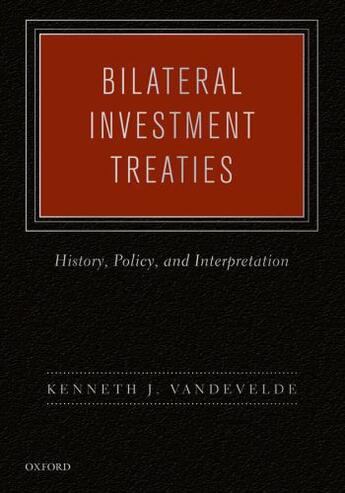-
Nombre de pages : (-)
-
Collection :
(-)
-
Genre :
(-)
-
Thème :
Non attribué
-
Prix littéraire(s) :
(-)
Résumé:
Bilateral Investment Treaties: History, Policy, and Interpretation organizes, summarizes and comments upon the arbitral awards interpreting and applying BIT provisions. Policymakers and practitioners will find a thorough introduction to the operation of the BITs, including the principal... Voir plus
Bilateral Investment Treaties: History, Policy, and Interpretation organizes, summarizes and comments upon the arbitral awards interpreting and applying BIT provisions. Policymakers and practitioners will find a thorough introduction to the operation of the BITs, including the principal arguments and case authorities on both sides of the major issues in international investment law. The book is intended to be a single-volume reference covering every important development in the 50 years of BIT programs worldwide, from 1959 until 2009.
Author Kenneth Vandevelde argues that the primary purpose of the BITs is to promote the application of the rule of law to foreign investment, while a secondary purpose is to create a liberal investment regime. He further argues that BITs are based on six core principles: reasonableness, security, nondiscrimination, access, transparency and due process. The book explains each of these principles and analyzes the major BIT provisions based on them. Vandevelde addresses the host of complex questions that BITs engender: Do bilateral investment treaties attract foreign investment or otherwise contribute to economic development? Do BITs limit host state regulatory discretion too much? Why should countries continue to conclude BITs? What is meant by BIT guarantees of "fair and equitable treatment" and "full protection and security"? What is the scope of the BIT provision for most-favored-nation treatment? The book's expert analysis of these questions makes it useful to policy makers in the area of international economic relations, attorneys representing multinational companies, and anyone interested in the process of economic globalization.
Donner votre avis














